Here’s a bonus installment of my Journey Through The Eclipse Series, which I regularly crank out on a weekly schedule. I’m adding this one to the mix because I’ve got a little extra time on my hands this week (using a bit of vacation time as summer winds down) and because Friday, August 26 marks the 70th anniversary of the release of Ornamental Hairpin, a sensitive, contemplative romantic drama from Japan. If you do the math, you’ll realize that this film hit the theaters just a few months before the Imperial Navy rained down bombs on Pearl Harbor and well into the period that Japan was aggressively expanding its empire into China and the islands of the South Pacific. One would hardly suspect that it was produced at such a volatile moment in that nation’s history, but watching what otherwise seems like a timeless summer-season idyll with that background awareness adds a degree of depth to what one makes of the film. It’s part of Eclipse Series 15: Travels With Hiroshi Shimizu.
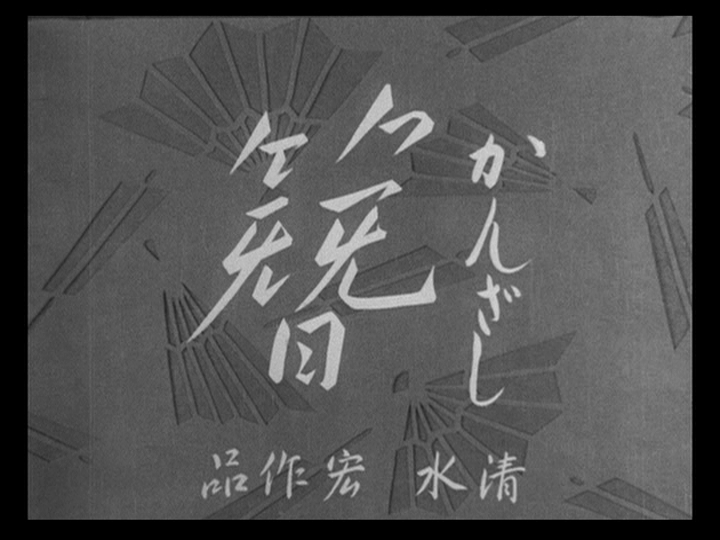
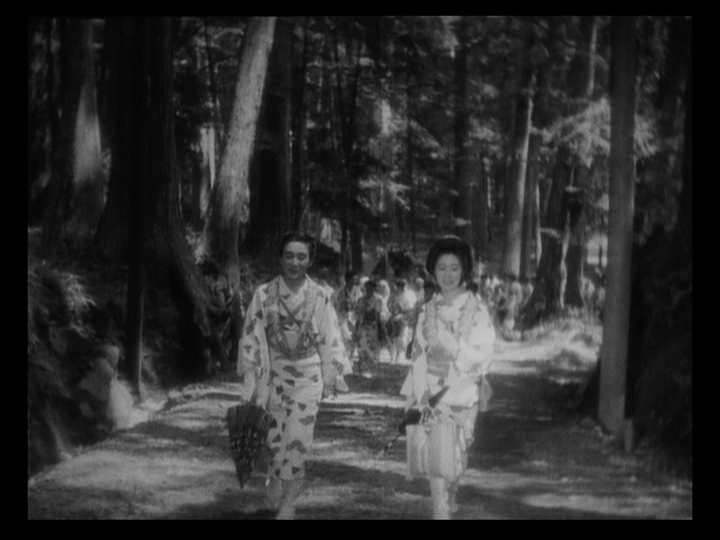
The film opens with a pleasant scene of pilgrims walking through a magnificent forest. The two women in the foreground, Okiku on the left, Emi on the right, are heading to a mountain resort and putting the pressures and hassles of their daily life in Tokyo out of mind for awhile. Their stylish and expensive kimonos indicate their comfortable and privileged status, but their conversation gives some evidence of discontent. Emi in particular seems to be on a search for something better, more fulfilling in her life, even if it means breaking away from her commitments and routines, “one of these days…”
After that quick introduction to Emi and her friend, the first third of the film is dominated by Katae, a cranky professor played by Tatsuo Saito, a mainstay actor in the earlier phases of Yasujiro Ozu’s career and last seen in this column as the husband in Mikio Naruse’s Every-Night Dreams. He has much more of a comic role here, a long-running slow burn as a gruff malcontent who reads the worst implications into comments made by others, snores loudly but complains at the noise made by others, and as you’ll see in the above clip, barks his dissatisfaction without reservation whenever he feels snubbed or slighted. (Note: the subtitles are different than what you’ll find on the Eclipse DVD.) While providing levity that nicely balances the otherwise earnest storyline of Ornamental Hairpin, Professor Katae’s preposterous rants and judgmental attitudes also make subtle digs at the authoritarian types who were calling a lot of shots in Japanese society at the time.
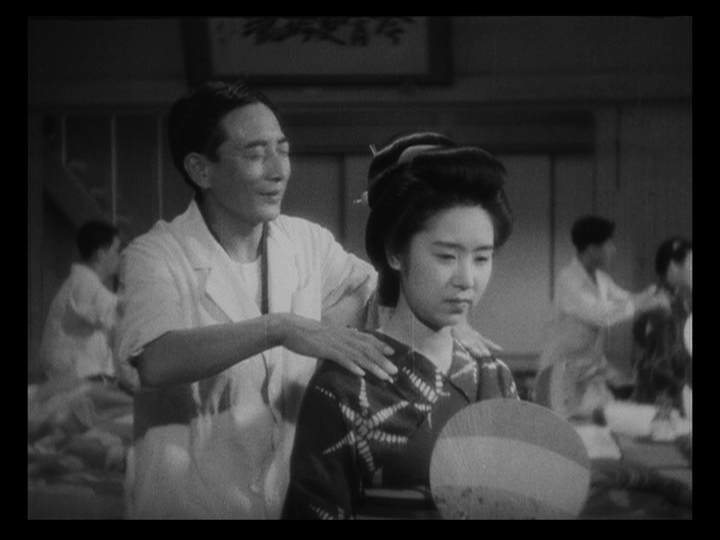
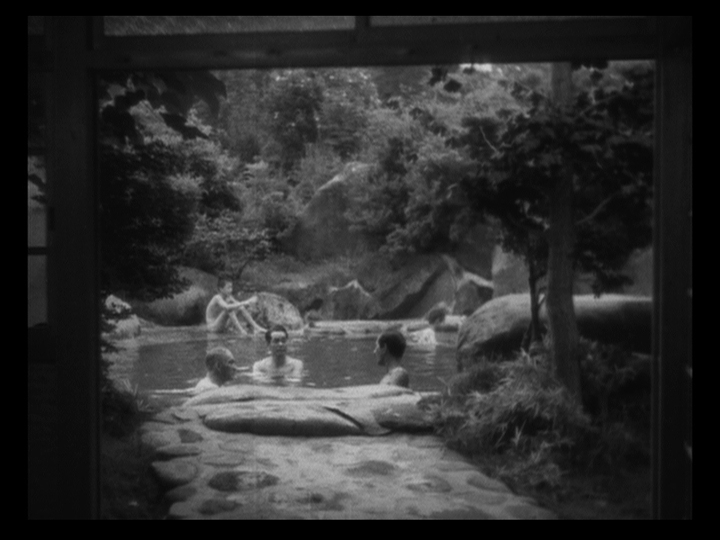
Ornamental Hairpin makes a great companion piece to Shimizu’s The Masseurs and a Woman, as both films take place in very similar settings, though if I had to choose the better of the two, I’d recommend Masseurs, which has a more interesting variety of characters, a punchier narrative and isn’t quite as sentimentalized as its follow-up. Still, if you enjoy the rustic scenery and an old-fashioned look at life in a pre-war Japanese health spa, I can think of no better movies to check out than these two!
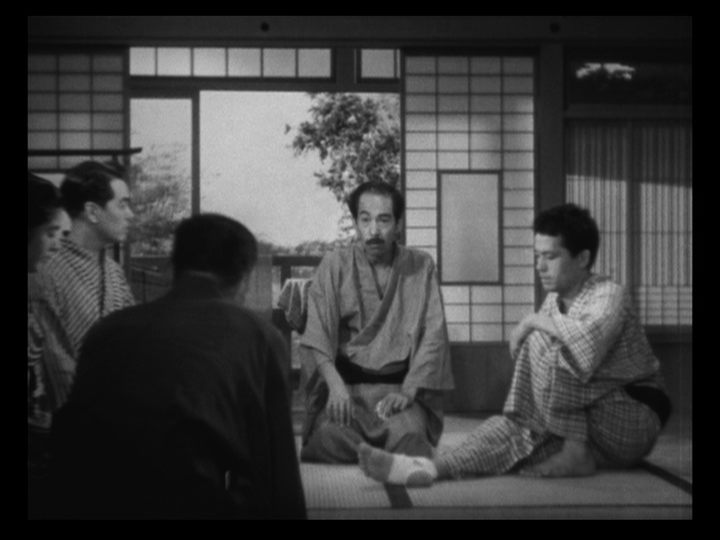
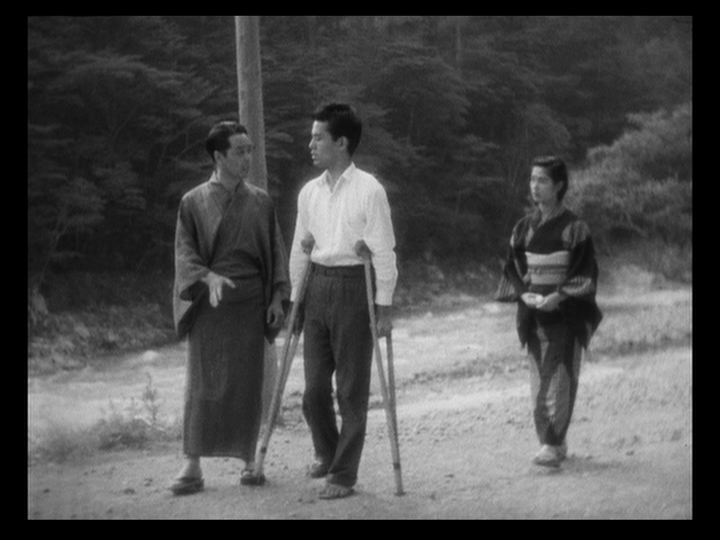
Ornamental Hairpin gets its title from the object that injures Nanmura, the male lead played by none other than Chishu Ryu, quite familiar to many readers here as the aging father in Ozu’s greatest films, from Late Spring right up to his final masterpiece An Autumn Afternoon. Here, with his full crop of dark black hair and hobbling around on crutches throughout the movie, he’s barely recognizable, but every so often one catches a hint of his laconic vocalization and world-weary resignation. Though Nanmura is a soldier on leave at the resort, he’s also kind of a dreamer, finding poetic significance in mundane events, including the needle that pierced his foot and in the process extended his stay at the resort as he recuperates from his wound.
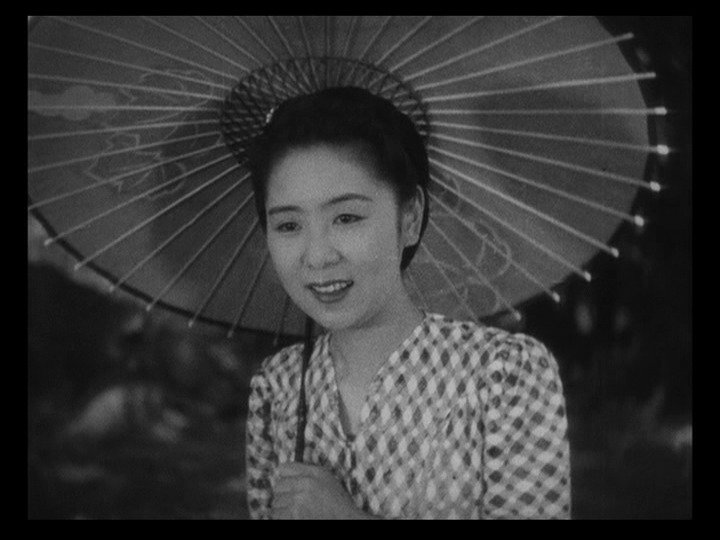
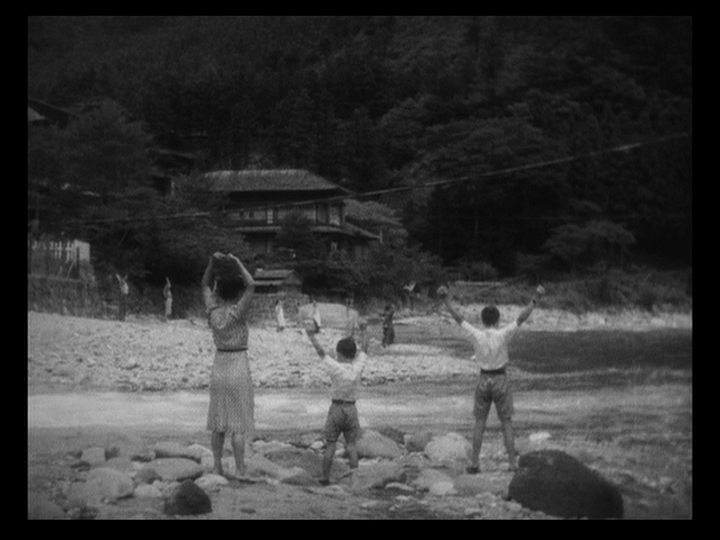
The hairpin belongs to Emi, naturally, who had already left her brief stay at the inn but returned when she was informed that her lost ornament had been found. Meeting Nanmura to express her apologies for his injury (and taking a degree of responsibility for the accident that doubtlessly feels excessive to most of us,) the set-up is complete for a sweet romantic encounter to take place – but they’re both pretty shy about expressing themselves to each other, so don’t expect the usual date flick banter. Instead, we see Emi find a degree of solace in the resort’s humble simplicity that makes a return to Tokyo feel more and more unbearable.

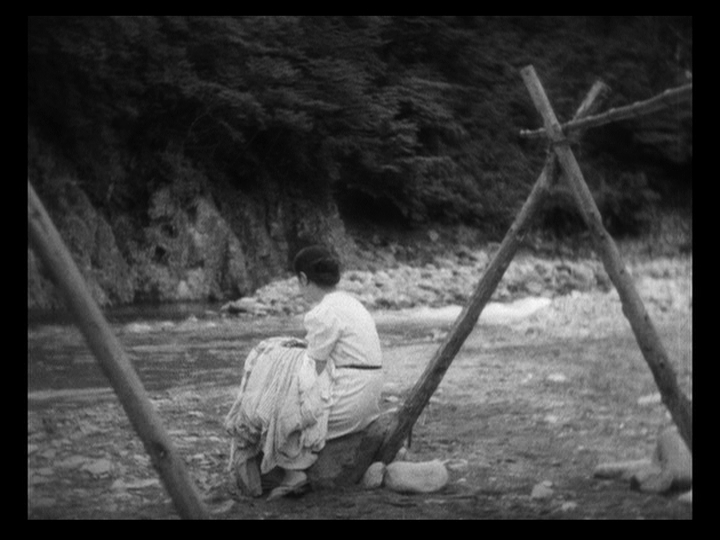
Though Shimizu doesn’t have a reputation as a master of the “women’s picture” that rivals either Naruse or Kenji Mizoguchi, Ornamental Hairpin probably holds its greatest value as a part of that genre. I found her plight, as a woman trapped in an exploitative relationship back home, manipulated by the material pleasures and emotional pressures exerted upon her, much more compelling than Nanmura’s, whose blend of poetic sensibility and ostensible military discipline didn’t seem nearly as believable or convincing. But maybe just watching all those Naruse films in recent weeks has made me kind of a softie for oppressed women holding back their tears…
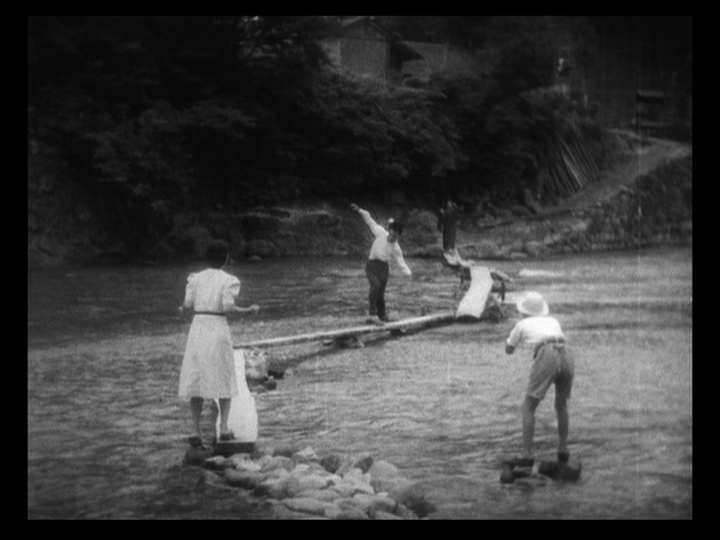
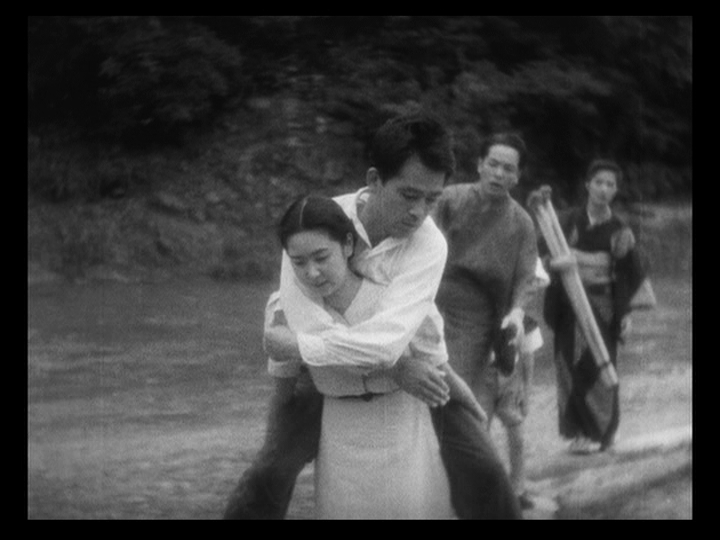
Another knock on Nanmura’s character is the nearly-ridiculous difficulties he has trying to learn how to walk again after that injury. Oddly enough, we never even see the Ornamental Hairpin itself, but judging from the way it crippled this able-bodied young soldier, it must have been a multi-barbed beast of a thing. I can’t say that I’m impressed with the Japanese army’s rehabilitation strategies from this era! His struggles to walk unassisted from one tree to the next, complete with cheering sections trying to heighten his determination, are drawn out to excess, and it only gets sillier as he takes on new obstacles, including a treacherous trek across a ramshackle plank bridge. He staggers and wobbles out to midstream, but finally has to rely on Emi herself to get him onto dry land! These scenes, which seem like some kind of precursor to modern Japanese game shows, are presented earnestly, to the point of being cloying and absurd if you let them get to you.
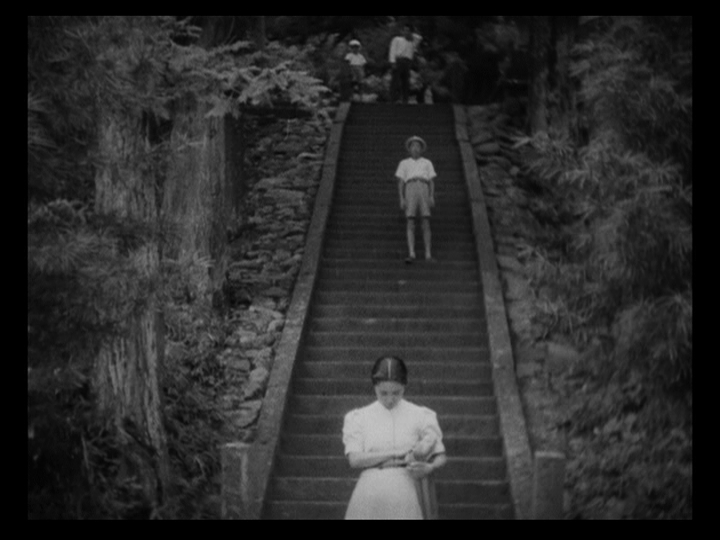
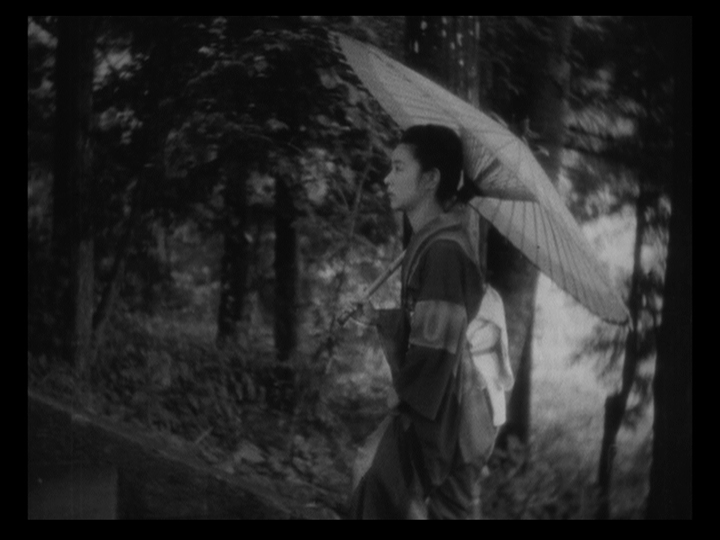
Rather than let the dramatic device of Nanmura’s recovery serve as a distraction though, allow your focus to remain on Emi and the dilemma she faces. Relate it, if you will, to any circumstances you’ve ever had a strong urge to escape from, not knowing what the consequences will be if you actually take that fateful step of separation. The film finishes on the most ambiguous of notes, as we’re left on our own to guess just what choice Emi finally made. Shimizu is a subtle director, and his purpose is not to clobber his viewers over the head with the obviousness of his message, and we should be very grateful for that. Like the object after which it’s named, Ornamental Hairpin is a thing of delicate beauty, though capable of inflicting a wound and piercing carefully guarded defenses.


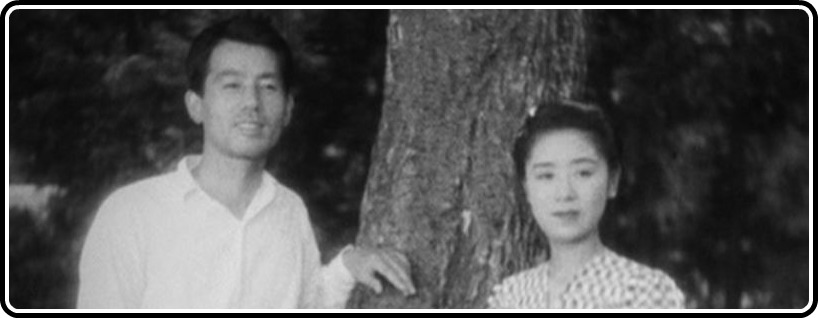
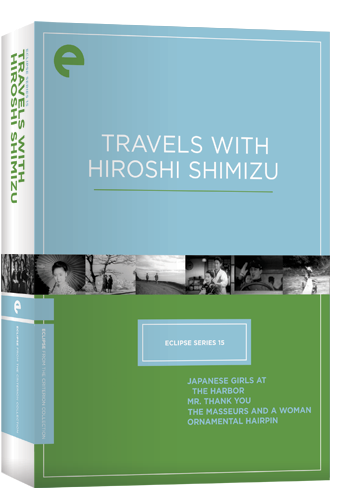
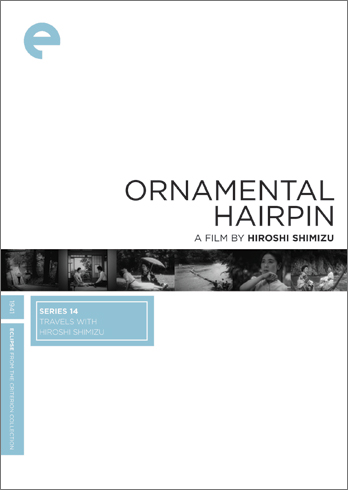

Great work as always, David! I love this one – it’s one of my personal favorites from the Shimizu set, though Mr. Thank You might still have top status for me. Good call on looking at this one as something of a women’s picture. I’m totally on the same page as you when you say Emi’s story strand is the strongest, though I also enjoy the camaraderie that forms between the various guests.
Thanks Marc! The thing I appreciate most about Shimizu’s films is how gracefully they linger in the memory. They have a fairly “low impact” feel when one is watching them, but in recollection, the impression they leave is very pleasant. And yes, the gentle humor of the exchanges between the children, the older men, the young husband and wife, etc. is another very charming dimension of this film!